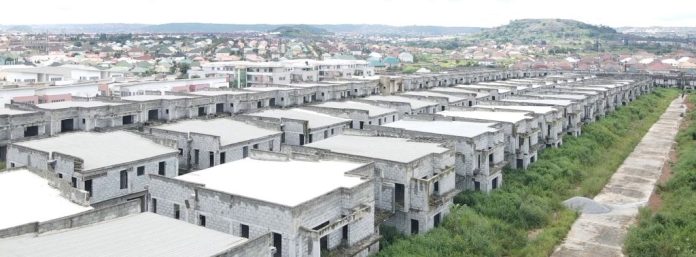December 3, 2024 — The Economic and Financial Crimes Commission (EFCC) has recently made headlines with what is being described as the largest asset recovery in its history, a sprawling estate in Abuja covering 150,500 square meters. The estate, located on Plot 109 Cadastral Zone C09, Lokogoma District, Abuja, includes 753 units of duplexes and apartments. The seizure was ordered by Justice Jude Onwuegbuzie on December 2, 2024, marking a significant step in the battle against corruption in Nigeria.
However, the spotlight on this monumental asset recovery has been somewhat overshadowed by the controversy surrounding the identity of the estate’s owner, which the EFCC has yet to disclose. Despite the scale of the seizure and its implications for the fight against corruption, the EFCC has refused to publicly name the “former top brass” from whom the estate was seized, sparking debate about transparency and accountability in high-profile corruption cases.
Social media and public discourse have been abuzz with questions regarding why the identity of such a high-profile individual remains a secret. Critics argue that withholding the name of the owner undermines public trust in the EFCC’s efforts and raises concerns about the potential protection of influential figures within Nigeria’s elite circles. There is growing discontent about the lack of transparency, with many questioning whether the anonymity serves the interests of justice or is meant to shield powerful individuals from public scrutiny.
Adding to the intrigue, rumors have surfaced suggesting that the estate may belong to a former Central Bank Governor, a claim that has fueled further speculation about the depth of corruption among Nigeria’s political and financial elites. If true, this connection would raise critical questions about the extent of financial misconduct within the country’s highest institutions.
This development highlights broader concerns regarding transparency in Nigeria’s anti-corruption efforts. The public is demanding more openness from the EFCC about the identities of those involved in major asset seizures, particularly when the assets recovered represent such significant sums. As the conversation continues to unfold, many are calling for greater accountability and transparency in the handling of assets seized from corrupt practices, reinforcing the need for the public to have access to the full details of these high-profile cases.



